No sanction for riders who broke level crossing at Paris-Roubaix
Commissaires say "spirit of rule" was respected
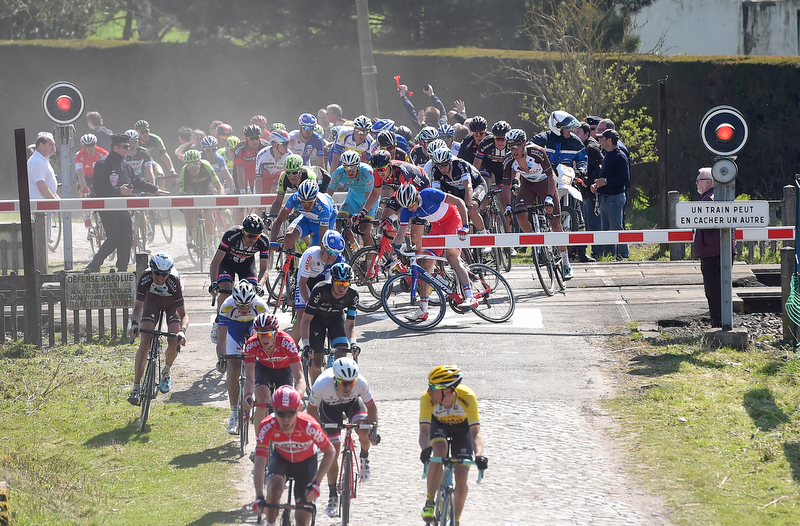
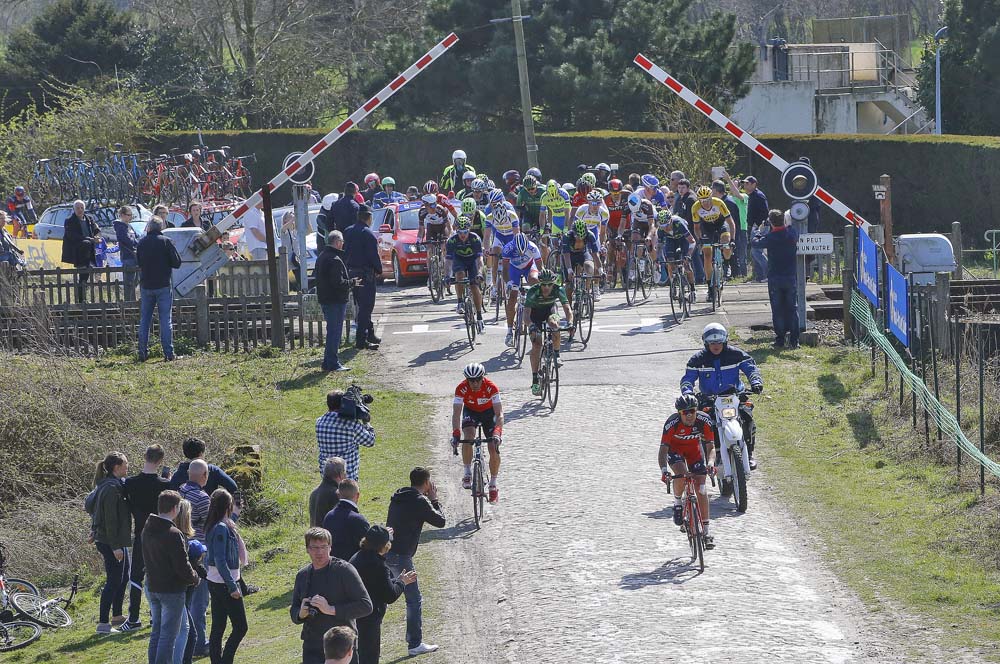
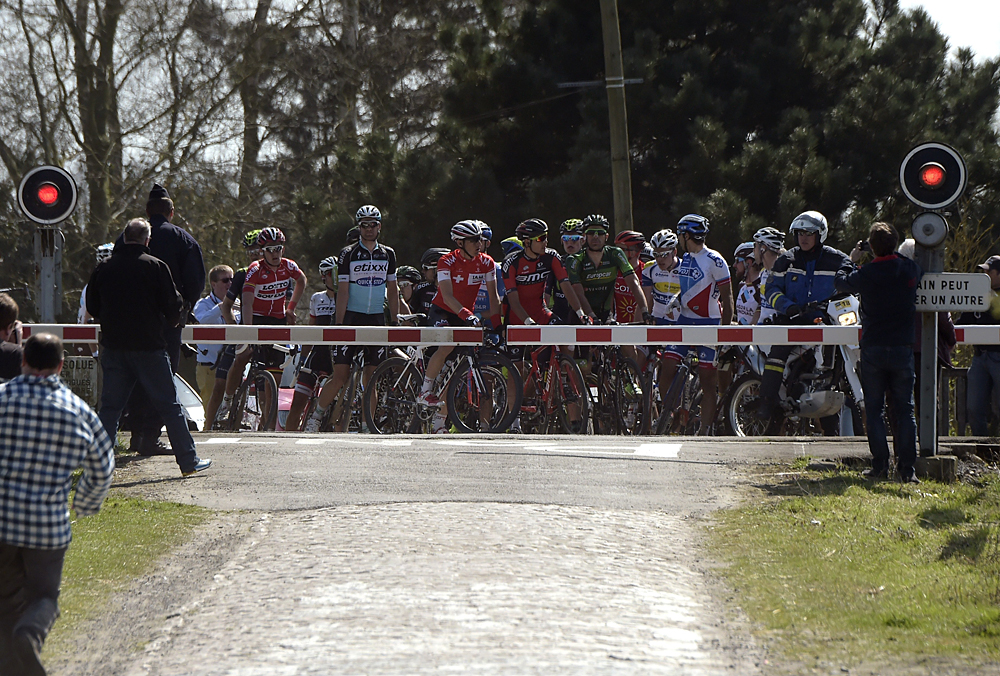
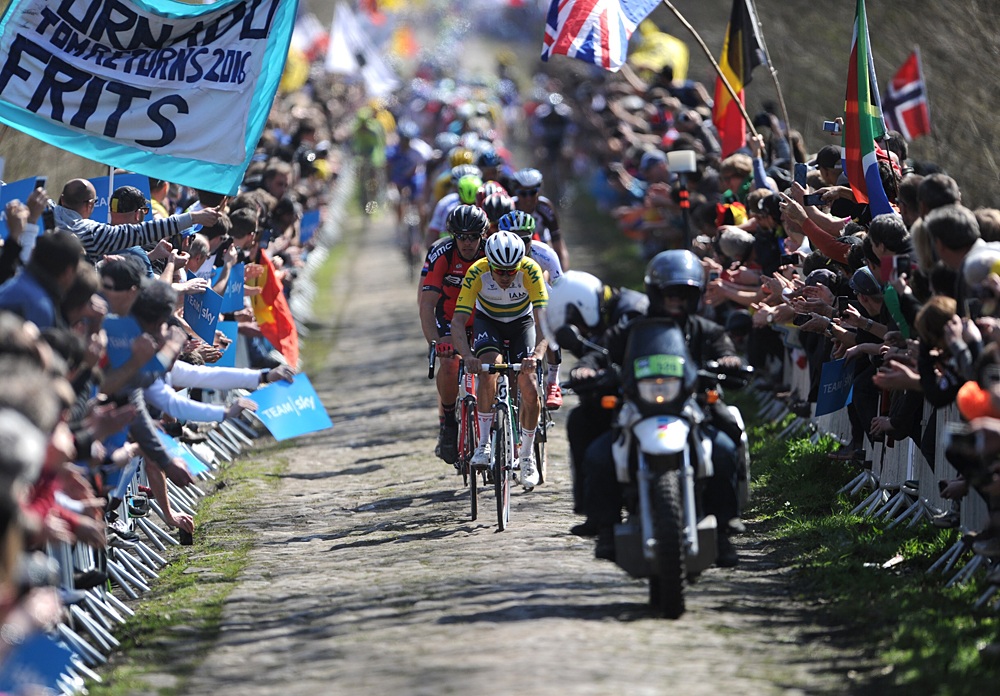
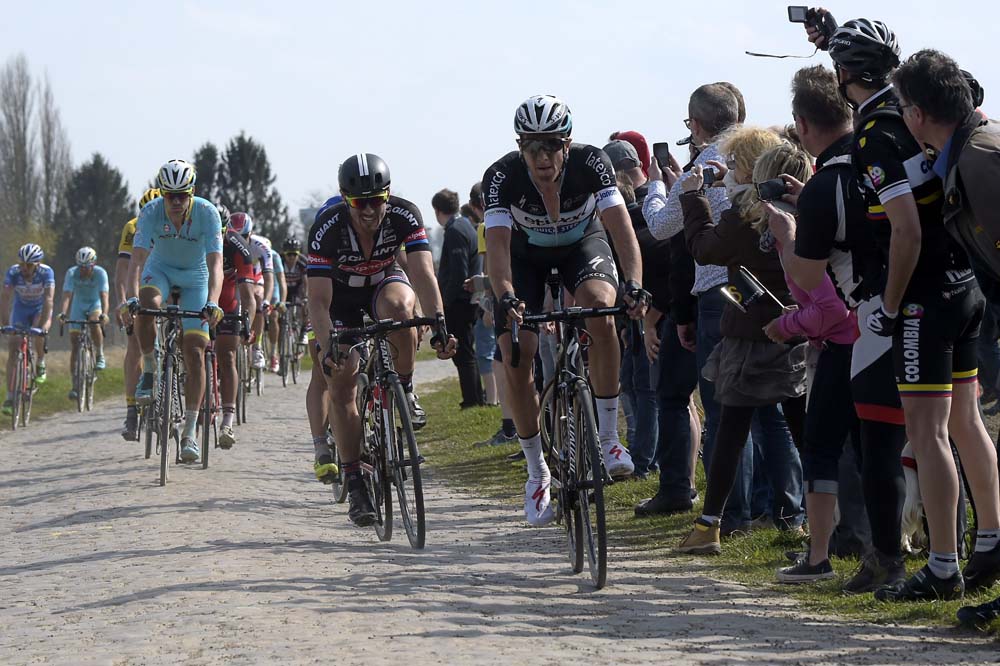
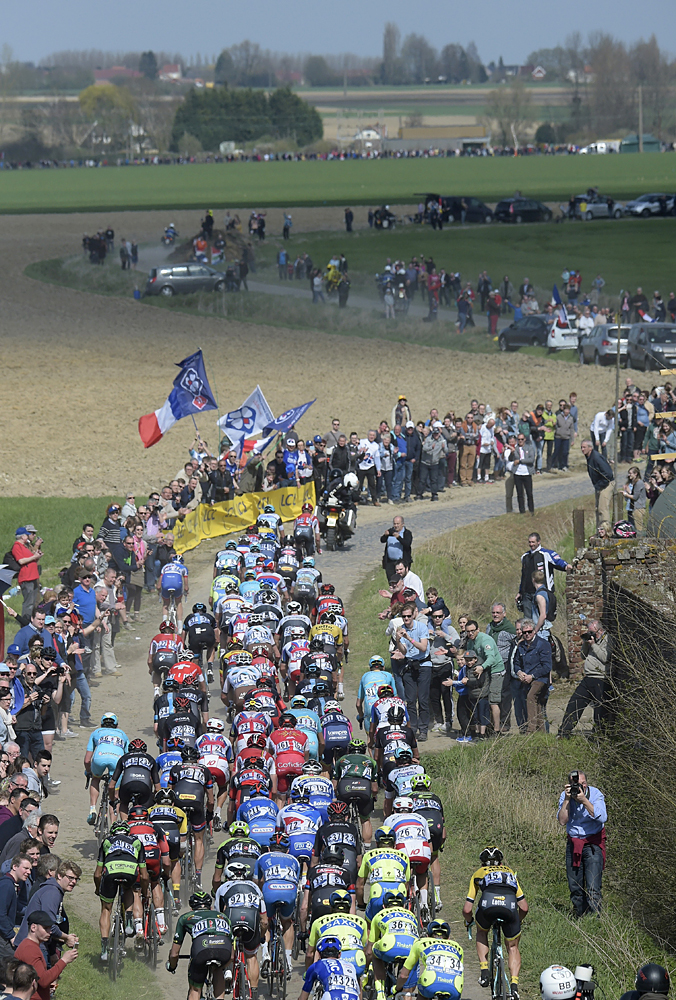
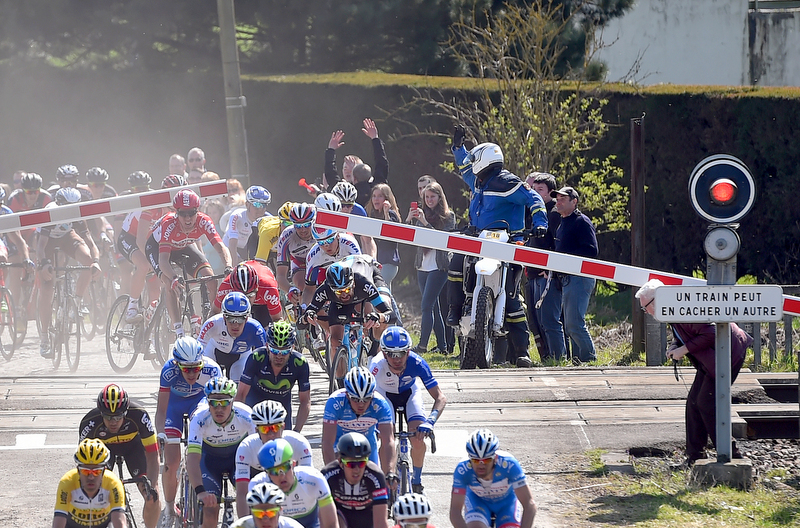
A similar incident in the 2006 edition of the race led to the disqualification of three riders but the commissaires at Paris-Roubaix have confirmed that no action will be taken against those who passed through a railway crossing after the barriers had begun to lower.
The incident took place as the main peloton reached a level-crossing shortly after exiting the Arenberg Forest. While the early break was unaffected, the lights had turned red by the time the main peloton approached, though the front end of the bunch made it through before the barriers had lowered.
Images show that around 30 riders, including Alexander Kristoff (Katusha) and Bradley Wiggins (Sky) slipped through, while French champion Arnaud Démare (FDJ) appeared to bang his head on the barrier as he made his way underneath and continued in the race. A police motorbike managed to stop the rest of the peloton – approximately 20 riders – from following suit shortly before a TGV thundered through.
"I was a bit on the limit and I was a bit far behind, so I crawled under the boom. I checked that it was clear, and the train was still a good distance away," Kristoff said of the incident after the race, which was won by John Degenkolb (Giant-Alpecin).
In 2006, the commissaires took the decision to disqualify Leife Hoste, Peter Van Petegem and Vladimir Gusev from second, third and fourth place after they had ignored a level crossing with 15 kilometres remaining to continue their forlorn pursuit of winner Fabian Cancellara.
Seemingly because of the sheer number of riders who had broken the rules on this occasion, the commissaires effectively turned a blind eye this time around as they could not reliably identify all of them. The race was simply briefly neutralised to allow the second part of the peloton to re-join those who had skipped the barrier, and no sanctions were handed out.
"The peloton was 10 metres away when the barriers started to close," the commissaires announced in a statement after the race. "It wasn't possible for the riders in front to stop in a sufficiently safe manner. The second part of the peloton was stopped.
The latest race content, interviews, features, reviews and expert buying guides, direct to your inbox!
"As a consequence, the commissaires together with the race organisation neutralised the first part of the peloton to facilitate a regrouping with the second part of the peloton and to get back to the situation from before the level crossing. This decision was relayed over race radio."
The race jury was led by Belgian commissaire Guy Dobbelaere, who offered further information on the matter to AFP.
"By neutralising the race for a few moments to not penalise those who stopped, we respected the spirit of the rule," he said. "In theory, those who pass when the barrier is down are thrown out of the race. This time, that would have been unjust in respect of those riders who weren't identified."
The start of Paris-Roubaix had been delayed by 10 minutes due to the weather conditions, with organisers fearful that the bunch would arrive too far ahead of the fastest estimated schedule due to the brisk tailwind that puffed the race northwards from Compiègne. The 2006 incident had also taken place during an edition that ran ahead of schedule due to a howling tailwind.
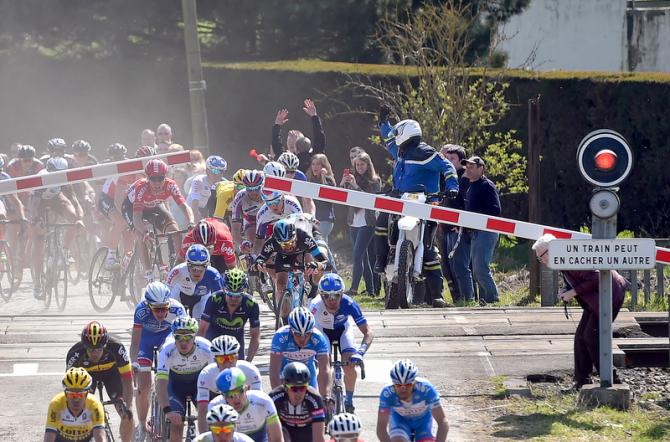

Barry Ryan was Head of Features at Cyclingnews. He has covered professional cycling since 2010, reporting from the Tour de France, Giro d’Italia and events from Argentina to Japan. His writing has appeared in The Independent, Procycling and Cycling Plus. He is the author of The Ascent: Sean Kelly, Stephen Roche and the Rise of Irish Cycling’s Golden Generation, published by Gill Books.